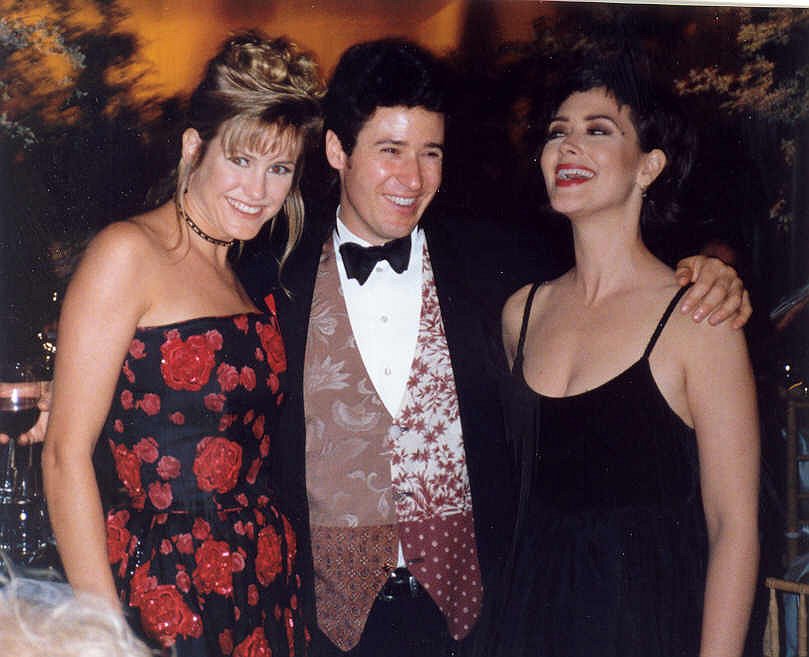|
Medical Bag
A medical bag (doctor's bag, physician's bag) is a portable bag used by a physician or other medical professional to transport medical supplies and medicine. Traditionally, the medical bag was made of leather, opened on the top with a split-handle design. During the American Civil War, physician's medical saddle bags were used. Modern medical bags are made of various materials and come in various designs that can include many pockets, pouches, and zippered or hook-and-loop openings. Indigenous North American medicine men and shamans use a medicine bag. A battle bag is used in the military. Popular culture The original Wonder Woman comic book character carried a medical bag (as a Lt. Nurse) in which she carried her costume and accessories. In 1955, the MV Joyita charter boat was found partially submerged after being missing for 5 weeks. Among the items found onboard was a doctor's bag containing a stethoscope, a scalpel, and four lengths of blood-stained bandages. In the tele ... [...More Info...] [...Related Items...] OR: [Wikipedia] [Google] [Baidu] |
Wonder Woman (TV Series)
''Wonder Woman'', later known for seasons 2 and 3 as ''The New Adventures of Wonder Woman'', is an American Superhero fiction, superhero television series based on the DC Comics comic book superhero of the same name. It stars Lynda Carter as Wonder Woman/Diana Prince and Lyle Waggoner as Steve Trevor Sr. and Jr., and aired for three seasons, from 1975 to 1979. The show's first season aired on American Broadcasting Company, ABC and is set in the 1940s, during World War II. The second and third seasons aired on CBS and are set in the then-current day late 1970s, with the title changed to ''The New Adventures of Wonder Woman''. Waggoner's character was changed to Steve Trevor Jr., the son of his character from season one. Plot In 1942, during the Second World War, American pilot Major (United States), Major Steve Trevor (Waggoner) bails out during an air battle over the Bermuda Triangle, location of Themyscira (DC Comics), Paradise Island. The island is home to the Amazons: beauti ... [...More Info...] [...Related Items...] OR: [Wikipedia] [Google] [Baidu] |
Northern Exposure
''Northern Exposure'' is an American Northern comedy-drama television series about the eccentric residents of a fictional small town in Alaska that ran on CBS from July 12, 1990, to July 26, 1995, with a total of 110 episodes. It received 57 award nominations during its five-year run and won 27, including the 1992 Primetime Emmy Award for Outstanding Drama Series, two additional Primetime Emmy Award The Primetime Emmy Awards, or Primetime Emmys, are part of the extensive range of Emmy Awards for artistic and technical merit for the American television industry. Bestowed by the Academy of Television Arts & Sciences (ATAS), the Primetime ...s, four Creative Arts Emmy Awards, and two Golden Globe Award, Golden Globes.Awards for ''Northern Exposure'' from IMDb Critic John Leonard (American critic), John Leonar ... [...More Info...] [...Related Items...] OR: [Wikipedia] [Google] [Baidu] |
Crimes Of Passion (1984 Film)
''Crimes of Passion'' is a 1984 American erotic thriller film directed by Ken Russell and starring Kathleen Turner, Anthony Perkins, and John Laughlin (actor), John Laughlin. The film explores themes of human relationships and mental illness. A mix of sex and suspense, the film opened to controversy over its content and to negative reviews. Plot Bobby Grady is an ordinary middle-class electronics store owner who occasionally wiktionary:moonlighting, moonlights doing surveillance work. He attends a Group psychotherapy, group therapy session because his wife, Amy, has lost interest in sex and he fears their marriage is in trouble. Grady is soon approached by the owner of a fashion design house to spy on an employee, Joanna Crane, who is suspected of selling clothing patterns to his competitors. Grady discovers the accusations are unfounded, but also learns that Joanna is moonlighting as a prostitute under the name China Blue, and shedding her business attire for provocative clothing ... [...More Info...] [...Related Items...] OR: [Wikipedia] [Google] [Baidu] |
Syringe
A syringe is a simple reciprocating pump consisting of a plunger (though in modern syringes, it is actually a piston) that fits tightly within a cylindrical tube called a barrel. The plunger can be linearly pulled and pushed along the inside of the tube, allowing the syringe to take in and expel liquid or gas through a discharge orifice at the front (open) end of the tube. The open end of the syringe may be fitted with a hypodermic needle, a nozzle or tubing to direct the flow into and out of the barrel. Syringes are frequently used in clinical medicine to administer injections, infuse intravenous therapy into the bloodstream, apply compounds such as glue or lubricant, and draw/measure liquids. There are also prefilled syringes (disposable syringes marketed with liquid inside). The word "syringe" is derived from the Greek σύριγξ ('' syrinx'', meaning "Pan flute", "tube"). Medical syringes Sectors in the syringe and needle market include disposable and safe ... [...More Info...] [...Related Items...] OR: [Wikipedia] [Google] [Baidu] |
Stethoscope
The stethoscope is a medical device for auscultation, or listening to internal sounds of an animal or human body. It typically has a small disc-shaped resonator that is placed against the skin, and one or two tubes connected to two earpieces. A stethoscope can be used to listen to the sounds made by the heart, lungs or intestines, as well as blood flow in arteries and veins. In combination with a manual sphygmomanometer, it is commonly used when measuring blood pressure. Less commonly, "mechanic's stethoscopes", equipped with rod shaped chestpieces, are used to listen to internal sounds made by machines (for example, sounds and vibrations emitted by worn ball bearings), such as diagnosing a malfunctioning automobile engine by listening to the sounds of its internal parts. Stethoscopes can also be used to check scientific vacuum chambers for leaks and for various other small-scale acoustic monitoring tasks. A stethoscope that intensifies auscultatory sounds is called a phonen ... [...More Info...] [...Related Items...] OR: [Wikipedia] [Google] [Baidu] |
Pressman Toy Corporation
Pressman Toy Corporation is a toy manufacturer based in Richardson, Texas. Founded in 1922 by Jack Pressman, it currently focuses on family games and licensed products. History The company was founded in 1922 by Jack Pressman, who brought in Max Eibitz as a partner in 1925, with Pressman doing sales and Eibitz managing the firm's Brooklyn factory.Company History Pressman Toy Company. Accessed August 2, 2009. One of the company's first hits was Chinese checkers, a game that Pressman acquired the rights to in 1928 after spotting the game on a trip to Colorado, and first marketed as "Hop Ching Checkers". The company was an innovator in licensing games and toys from popular media, such as the '' |
Lynn Pressman Raymond
Lynn Pressman Raymond (c. 1912 – July 22, 2009Grimes, William ''The New York Times'', August 1, 2009. Accessed August 2, 2009.) was an American business executive who joined her husband Jack Pressman in developing and growing the Pressman Toy Corporation, and was an innovator in creating and licensing toys based on hit television programs and professional athletes in her two decades as president of the firm following her husband's death in 1959. Early life and career She was born in Woodhaven, Queens as Lynn Rambach, and grew up in Brooklyn, where she graduated from Erasmus Hall High School. Starting as a secretary at Abraham & Straus after completing high school, where she moved up the ladder to higher posts in advertising and training. She moved to McCreery's department store on Fifth Avenue where she moved up to a senior merchandising post. At McCreery's she set up promotional stunts that included having an employee dressed in an usher's uniform carry in with great fanfare ... [...More Info...] [...Related Items...] OR: [Wikipedia] [Google] [Baidu] |
Night Gallery
''Night Gallery'' is an American anthology television series that aired on NBC from December 16, 1970, to May 27, 1973, featuring stories of horror and the macabre. Rod Serling, who had gained fame from an earlier series, ''The Twilight Zone'', served both as the on-air host of ''Night Gallery'' and as a major contributor of scripts, although he did not have the same control of content and tone as he had on ''The Twilight Zone''. Serling viewed ''Night Gallery'' as a logical extension of ''The Twilight Zone'', but while both series shared an interest in thought-provoking dark fantasy, more of ''Zone''s offerings were science fiction while ''Night Gallery'' focused on horrors of the supernatural. Format Serling appeared in an art gallery setting as the curator and introduced the macabre tales that made up each episode by unveiling paintings (by artists Thomas J. Wright and Jaroslav "Jerry" Gebr) that depicted the stories. His intro usually was, “Good evening, and welcome to a ... [...More Info...] [...Related Items...] OR: [Wikipedia] [Google] [Baidu] |
Cyril M
Cyril (also Cyrillus or Cyryl) is a masculine given name. It is derived from the Greek name Κύριλλος (''Kýrillos''), meaning 'lordly, masterful', which in turn derives from Greek κυριος (''kýrios'') 'lord'. There are various variant forms of the name ''Cyril'' such as ''Cyrill'', ''Cyrille'', ''Ciril'', ''Kirill'', ''Kiryl'', ''Kirillos'', ''Kuriakose'', '' Kyrylo'', ''Kiril'', ''Kiro'', and ''Kyrill''. It may also refer to: Christian patriarchs or bishops * Cyril of Jerusalem (c. 313 – 386), theologian and bishop * Cyril of Alexandria (c. 376 – 444), Patriarch of Alexandria * Cyril the Philosopher (link to ''Saints Cyril and Methodius''), 9th century Greek missionary, co-invented the Slavic alphabet, translated the Bible into Old Church Slavonic * Pope Cyril II of Alexandria reigned 1078–1092 * Greek Patriarch Cyril II of Alexandria reigned in the 12th century * Cyril of Turaw (1130–1182), Belorussian bishop and orthodox saint * Pope Cyril III of Alexandri ... [...More Info...] [...Related Items...] OR: [Wikipedia] [Google] [Baidu] |
The Little Black Bag
"The Little Black Bag" is a science fiction novelette by American Cyril M. Kornbluth, first published in the July 1950 edition of ''Astounding Science Fiction''. It is a predecessor of sorts to the story "The Marching Morons". It won the 2001 Retroactive Hugo Award for Best Novelette (of 1951) and was also recognized as the 13th best all-time short science fiction story in October and November 1971 ''Analog Science Fact & Fiction'' poll, The Reference Library review article, tied with "Microcosmic God" by Theodore Sturgeon. It was among the stories selected in 1970 by the Science Fiction Writers of America as one of the best science fiction short stories published before the creation of the Nebula Awards. As such, it was published in ''The Science Fiction Hall of Fame Volume One, 1929-1964''. It was the basis of episodes (using the same title) in three television series: ''Tales of Tomorrow'' in 1952, ''Out of the Unknown'' in 1969 (which now only exists partially) and ''Night Gal ... [...More Info...] [...Related Items...] OR: [Wikipedia] [Google] [Baidu] |
Doctor Ross
Isaiah Ross (October 21, 1925 – May 28, 1993), known as Doctor Ross, was an American blues musician who usually performed as a one-man band, simultaneously singing and playing guitar, harmonica, and drums. Ross's primal style has been compared to John Lee Hooker, Blind Boy Fuller and Sonny Boy Williamson I. Early life Charles Isaiah Ross was born on October 21, 1925 in the Mississippi Delta town of Tunica, Mississippi, one of eleven children in a farming family of mixed African-American and Native American heritage. His first instrument was the harmonica, which he learned to play at age nine. Ross served in the United States Army from 1943 to 1948 in the Pacific Theater, and again from 1950 to 1951. He married shortly after leaving the army. During his service, Ross had accrued a collection of army medical books which, along with his habit of carrying his harmonicas in a doctor's bag, earned him the nickname "Doctor Ross." Career Ross made his professional debut in 1 ... [...More Info...] [...Related Items...] OR: [Wikipedia] [Google] [Baidu] |
.jpg)




